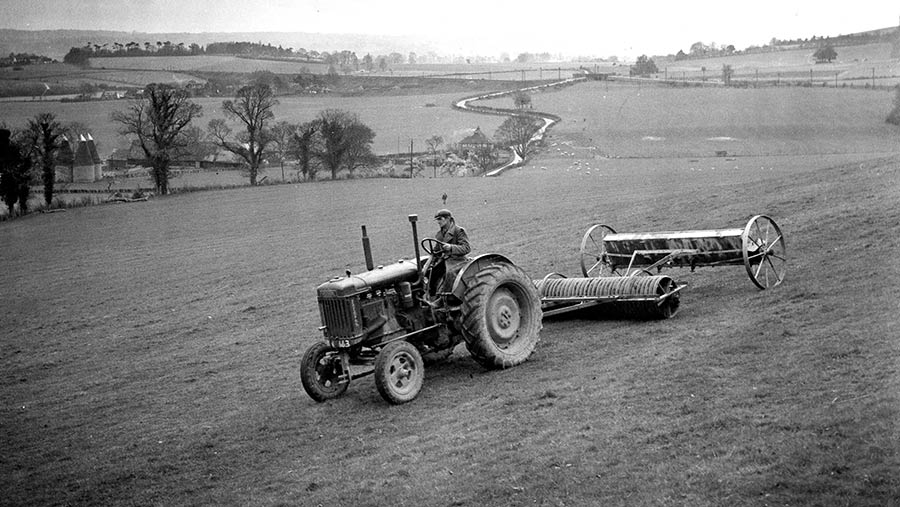Opinion: It’s time again to become ‘dog and stick’ farmers
 © Topfoto
© Topfoto When I was about 10 years old I used to follow my father round the farm as he attended to his chores. Occasionally we would call on an old man, who had a farm in the village, for a chat and a cup of tea.
He was a wise old bird who was really my father’s mentor, although I didn’t know that word at the time.
On one of those mornings, as I sat listening to the conversation, I picked up a phrase I didn’t understand.
See also: Opinion: Family farms will suffer most in the financial squeeze
The old man said: “You know, Robert [my father], there can be a difference between a good farmer and a successful farmer.”
Precocious child that I was, I interrupted and said: “That doesn’t make sense. Surely a good farmer is successful.
“Well, my boy,” said the old man, “let me explain. During the depression before the war” (the Second World War, which was only just over) “many of my friends continued to farm as they’d always done.
“They kept employing men, they cut their hedges, dug their ditches and their farms looked well. But the prices for what they were selling fell through the floor and they went bust.
“I decided to follow a different course,” he continued. “I sacked all my men; I allowed my hedges to run wild and my ditches filled with spoil and I spent almost nothing.
“I bought a flock of sheep and walked about with a stick and a dog. I was a very bad farmer, but I survived, and therefore I was successful and able to do the job properly when conditions improved.”
It seems to me, as I write this, my last column for Farmers Weekly, that the lesson I learned from that old man might be appropriate for some of us over the next few years.
Input costs are high, output rewards are volatile and slipping downwards. And government aid is declining. Indeed, the only government aid left before long will be that which encourages dog and stick farming.
Not that I think that is the right way forward for either farmers or consumers. But if that is the only way to survive, it has to be considered.
Inevitably, food will become short, prices will rise, as they did during and after the Second World War, and those farmers left will eventually do very well – at the expense of consumers.
The sad thing is, government has been warned. I remember some 15 years ago a report by the Royal Society that called for “sustainable Intensification”.
Some ridiculed the phrase. They called it contradictory and said it didn’t make sense. But some of us knew exactly what it meant and agreed with it.
A few years later the government’s then-chief scientist, Sir John Beddington, delivered an urgent warning agreed by a consortium of world scientists.
They said we were facing a “perfect storm” consisting of climate change, increasing population and urbanisation.
Sir John urged government to adopt greater food production as a core policy and to integrate it with care for the environment.
Clearly these exchanges, including constant contemporary campaigning by Minette Batters and others, have been a dialogue of the deaf. So I’m off to the wood to cut myself a good stick.

